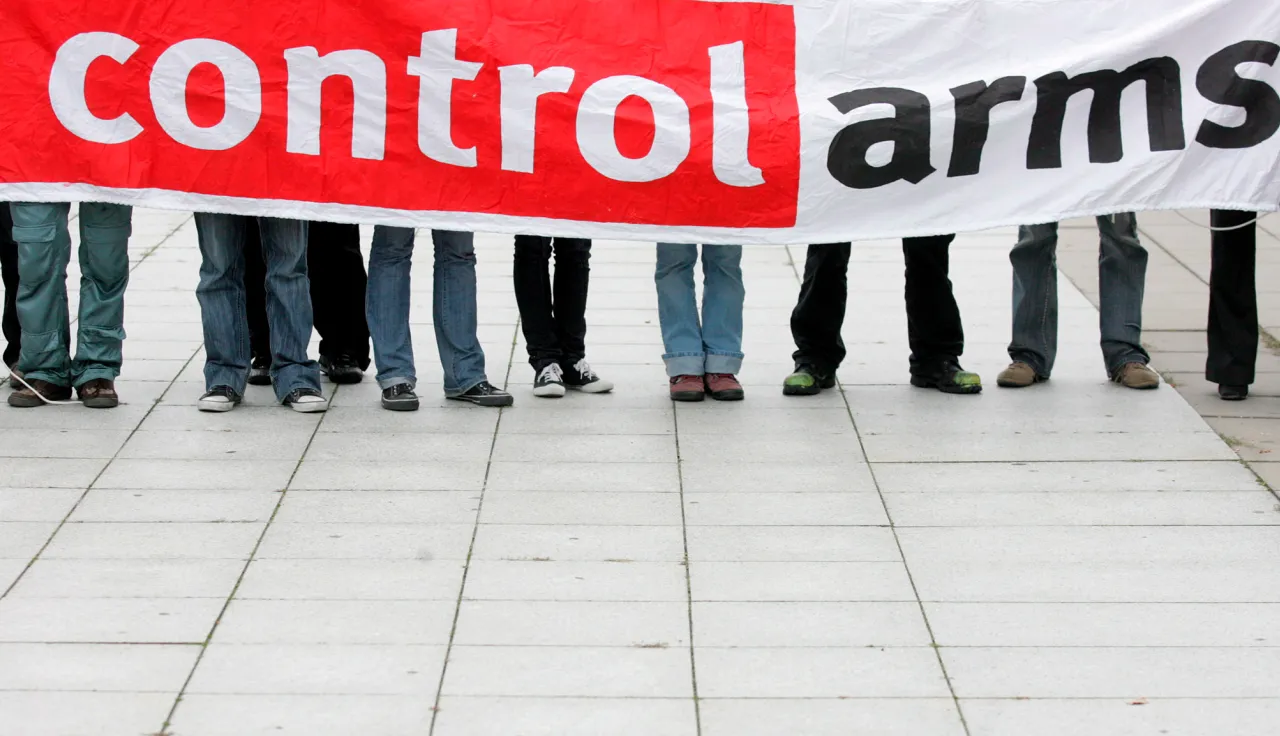Malaysia: A regional conference to strengthen protection for victims of war

Experts from governments and Red Cross/Red Crescent Societies of the Asia-Pacific region will gather in Kuala Lumpur from 25–27 March for a regional conference on the Arms Trade Treaty and strengthening international humanitarian law. ICRC legal adviser Gilles Giacca looks ahead.
What is the conference about?
 The conference has two aims. First, to provide a regional forum to exchange ideas and points of view on the Arms Trade Treaty (ATT) and its implementation, and to provide an opportunity for participants from 20 countries to discuss the humanitarian impact of weapons availability, the possible benefits of becoming a party to ATT, and how to incorporate the treaty into domestic legal and regulatory frameworks.
The conference has two aims. First, to provide a regional forum to exchange ideas and points of view on the Arms Trade Treaty (ATT) and its implementation, and to provide an opportunity for participants from 20 countries to discuss the humanitarian impact of weapons availability, the possible benefits of becoming a party to ATT, and how to incorporate the treaty into domestic legal and regulatory frameworks.
Second, it will provide an opportunity for those present to discuss topics on the agenda of next December's International Conference of the Red Cross and Red Crescent, in particular legal initiatives such as health care in danger and international disaster laws.
What is the Arms Trade Treaty all about?
The ATT, adopted by the UN General Assembly in April 2013 and which entered into force on 24 December 2014, sets agreed international standards for responsible international transfers of conventional arms, ranging from small arms and ammunitions to battle tanks, combat aircraft and warships.
The treaty's greatest achievement is that it subjects arms transfers to scrutiny based on humanitarian concerns, and requires that transfers be denied where there is a certain level of risk that they could be used to commit war crimes or other serious violations of international human rights law.
Why is the ICRC interested in arms transfer controls?
As an impartial and neutral humanitarian organization providing assistance to those suffering the effects of armed conflict and other situations of humanitarian concern, the ICRC has long witnessed the effects of inadequate control over transfers of conventional weapons.
Every year, because of the widespread availability and misuse of conventional weapons, hundreds of thousands of civilians are displaced, injured or killed. Apart from the threat to the life and physical security of civilians, armed violence also has a significant socio-economic impact, due to damage or destruction of property and productive assets. This has serious and long-lasting effects on the well-being and survival of communities, a state of affairs that is now being addressed at the international level with the adoption of the Arms Trade Treaty.
The ICRC contributed to the development of the treaty during the negotiation process, seeking the strongest possible protection for civilians and humanitarian action. Faithfully and consistently applied, the ATT will help to protect the lives, health and well-being of millions of people around the world who are experiencing the horror and hardship of armed conflict.
Now that the ATT has become law, are there still concerns?
Like any international agreement, the treaty's impact will depend on the number of states that adhere to it. To date, 130 Member States have signed the treaty and 63 have ratified it, including Japan, Australia and New Zealand in the Asia-Pacific region.
Although the ATT does not yet represent a universal standard – many nations have yet to observe it – the treaty will create a global norm on responsible arms transfers, which will generate expectations regarding the behaviour of all states.
The ICRC recognizes that for some, joining and fully implementing the ATT may have certain political and economic ramifications. But these costs will be largely overridden by increased protection for civilians that the treaty will achieve.
We must remain lucid, however, that weapons are continuing to flow into some of the most acute crises in the world. Considerable efforts are therefore needed to align the practice of states with the ATT. Ratification and implementation is what will make a difference on the ground.
What support can states expect for implementation of the ATT?
The ICRC stands ready to assist states by providing guidance to governments and parliamentarians on incorporating the treaty's requirements into national legislation. To facilitate this process and capacity building efforts, the ICRC has organized a series of regional meetings and seminars for government experts.
The ICRC has already published an explanatory Fact Sheet on the ATT and is also developing a number of publications. These include an analysis of the treaty entitled Understanding the ATT from a Humanitarian Perspective and an update of the ICRC's practical guide on Arms transfer decisions: Applying international humanitarian law and human rights law criteria.
The UN has also published a ratification guide describing the procedures that countries must follow in order to sign, ratify, accept, approve or accede to the ATT. The New Zealand government has sponsored the development a Model Law to assist in identifying and translating ATT commitments into national legislation.
Why is the conference being held in Asia?
This is the first ICRC conference on ATT since the treaty came into force. It is especially significant for us to host this conference in Malaysia where, in 2013, together with the Malaysian Foreign Affairs Ministry, we hosted a regional consultation meeting to discuss strengthening legal protection for people deprived of liberty in non-international armed conflicts.
This regional conference will help build momentum to reduce human suffering by strengthening protection for victims of war, contributing to the first review conference on ATT, to be held in Mexico in August this year, as well as the International Conference of the Red Cross and Red Crescent in December.



